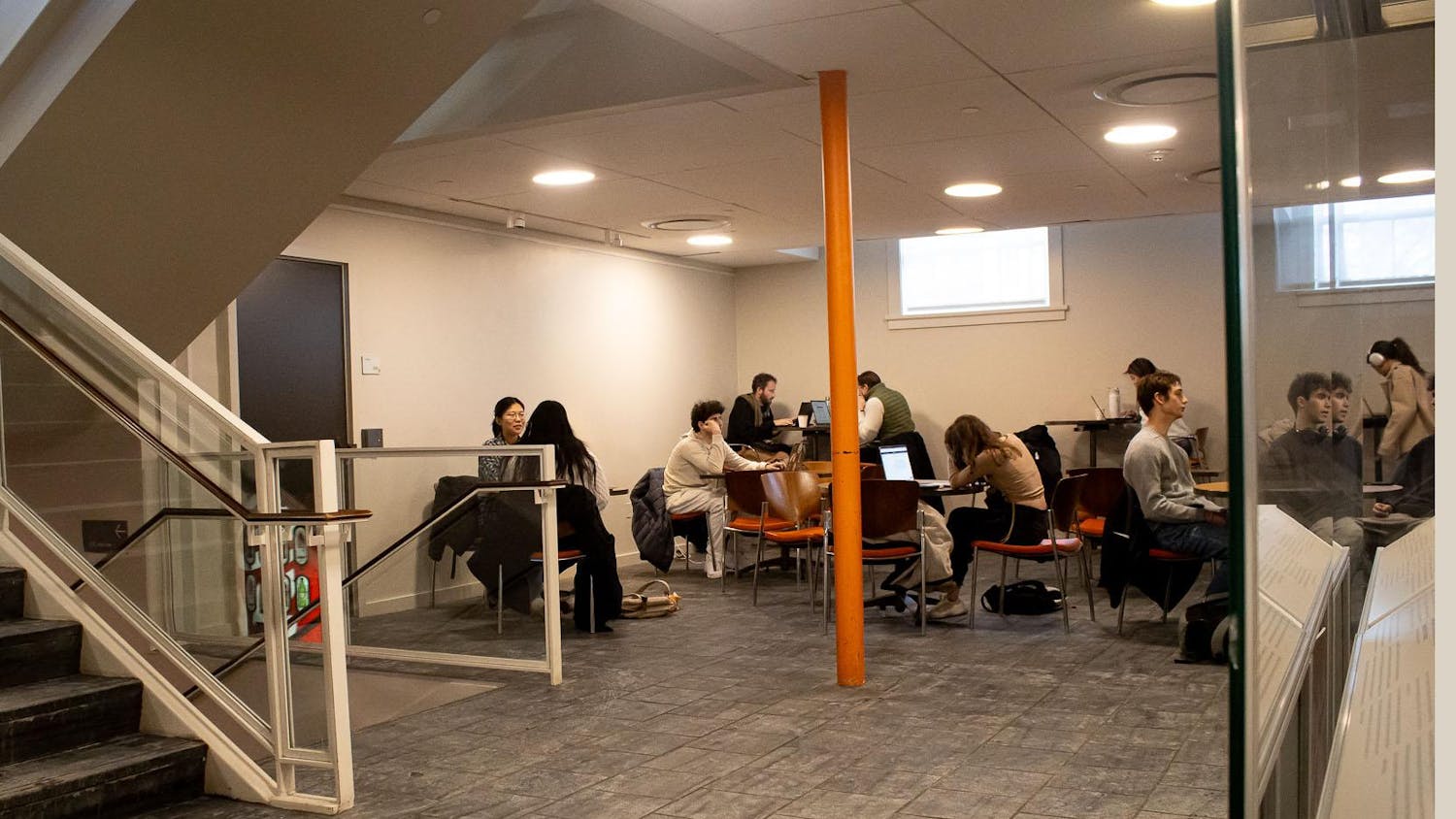The Black Student Union celebrated its fourth annual Black Convocation Sunday for the classes of 2024 and 2025. The event, themed “Rooted and Resting: Rebuilding Brick by Brick” this year, welcomed Black underclassmen to College Hill and into the Black community at Brown, encouraging them to lean on one another for support and to forge new traditions.
More than 200 underclassmen dressed in white walked into Starr Plaza and took their seats, where they listened to Shades of Brown, a multicultural, multiethnic, co-ed acapella group on campus, as well as three speakers who shared advice about college and life. In past years, Black Convocation was held at Manning Chapel due to its proximity to the Slavery Memorial, but the event was held outside at Starr Plaza this year to accommodate COVID restrictions.
Black Convocation was started by BSU in 2018 by then-President Yacine Niang ’19.
The Convocation is one of the “very few moments in Brown’s history where all of the Black students, the faculty, the alumni can really gather in community and celebrate the legacy of Black students at Brown, where the only intent is joy and well wishes, and nothing but immense love,” said BSU President Ciara Sing ’22. This year’s Convocation was especially important to bring people together after the isolation caused by COVID-19, she added.
“I think it was hard for everyone to build community — but especially within the Black community — because so often we feel isolated in classrooms or our dorms,” she said. “I think COVID exacerbated the isolation.”
Sing began the Convocation with a short introduction and a land acknowledgment.
“Moments like this make me really proud to be part of Brown and excited about all the many wonderful faces that I get to see here,” Sing said, speaking to the crowd. “Today, we will celebrate the newest members of our community.”
Upperclassmen and members of BSU’s E-Board chose speakers based on who shaped their time at Brown, and who could offer similar support to underclassmen. The first speaker of the program was Assistant to the President for Special Projects Olugbenga Joseph ’16.
Joseph’s first piece of advice was to “fail first,” based on his own experiences as a first-year.
“If you navigate your time at Brown and you never fail, it probably means you never took a risk, which means you fail by default,” he said.
Elaborating on lessons gleaned from his experiences at Brown, he shared a second piece of advice: “Invest in yourself so you can invest in others.” During his time at Brown, Joseph invested in himself by taking advantage of various campus resources at his disposal, including CareerLAB and the Writing Center.
His final piece of advice was to “commit to community.” Joseph prompted the crowd to look around at the people sitting next to them.
“These are your co-captains, your classmates, your colleagues, the people you’re going to be learning from, learning with, trying and failing and trying,” he said. “And it’s very important for you to commit to that community.”
Building on the Convocation’s theme, Joseph added that new students have an opportunity to redefine their own traditions and community.
“The senior class, the one graduating in 2022, is the only class of Brown that has been here for (one full year) in person. And so what that means is that we have a very interesting opportunity to redefine those traditions and create new ones as Black students. And so I encourage you to embrace the opportunity, and leave the legacy behind in the same way that you’ve seen created by Convocation.”
The Shades of Brown continued the program with a performance of their introduction song, “Shades,” and “What You Don’t Do,” by Lianne La Havas.
“It’s very important for us to be present at (people of color) events, specifically Black events on campus,” said Teniola Ayeni ’23, music director of Shades at Brown. “We want to make sure that first-years know that they have the space and community to make music moving forward, and so this is a good opportunity for us to introduce ourselves to them and also for them to see us.”
The next speaker was Melaine Ferdinand-King GS, a fourth-year doctoral candidate in Africana Studies, who was a teaching assistant for a class that Sing and other E-Board members had taken.
“If there’s anything I have experienced … and from the many lessons that we learn from history, it’s that spirit and maintaining your spirit is perhaps one of the most important things you can do for yourself and for others in times of uncertainty,” Ferdinand-King said. “Part of cultivating your spirit as a student here at Brown, or what is known as your social and ethical emotional character, is knowing yourself.”
She continued that students’ time at Brown is not just about classes and academics, but also self-reflection and forming connections and relationships that allow them to become their “favorite self.”
The program concluded with keynote speaker Lisa Biggs, assistant professor of Africana Studies, who spoke about the history of Black activism on campus.
“In 1968, there were (roughly) 80 Black students between Brown and Pembroke combined,” Biggs said. “And I want to say that we have … three times as many … They couldn’t have predicted you would be here, they couldn’t have predicted that I would be here.”
After the program concluded, the students were invited to take class pictures and continue celebrating in the plaza with food and drinks.
Several underclassmen were excited to take part in the event to meet peers, learn more about the Black community at Brown and continue the legacy of Black Convocation.
“The speakers were very influential,” said Jada Joseph ’25, who valued their advice “because they’ve been where we are,” adding that it was powerful and empowering to see such a high turnout.
“Being a part of a community means a lot to me,” added Sofia Nuri ’25.
Going forward, Sing hopes to continue expanding the ceremony and hopes to increase the event’s visibility.
“We really want to create a moment during the beginning of the year so that way when things come up they know that they can call on any one of us,” Sing said.
Black Convocation, she continued, provides an especially healing space for the Black community “to just be celebrated and nothing else.”

Gaya Gupta was Senior Editor of Digital News for the 132rd Editorial Board. She previously covered diversity on campus. She is a junior from the San Francisco Bay Area studying computer science and English.





